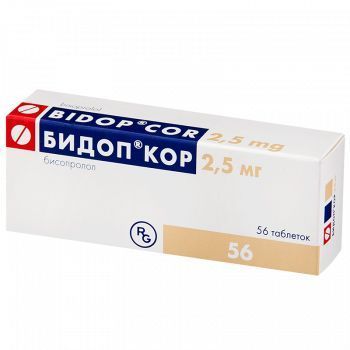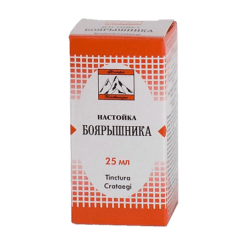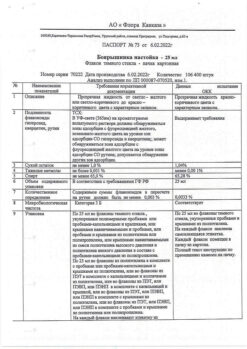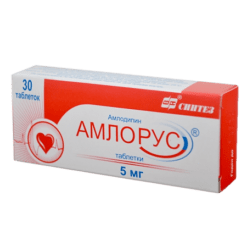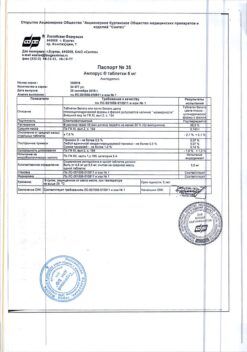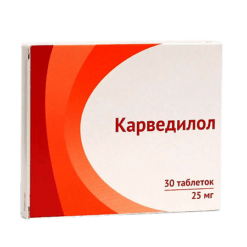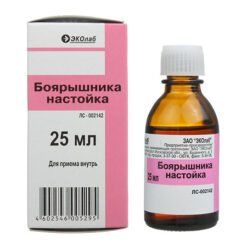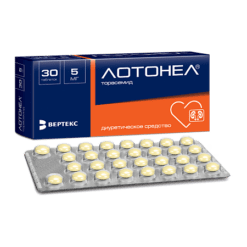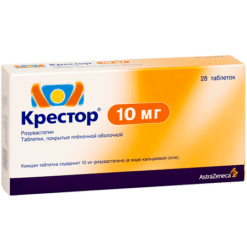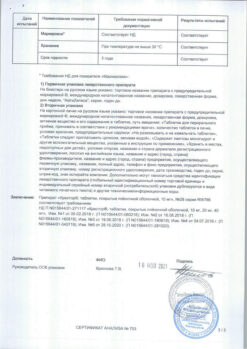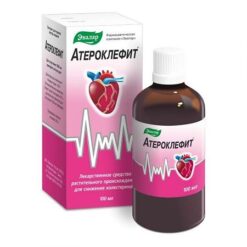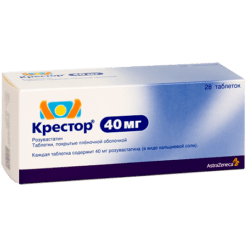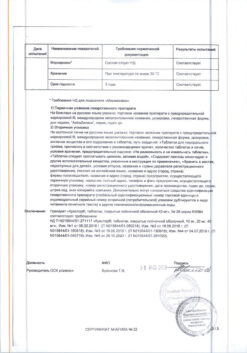No products in the cart.
Bidop Cor, tablets 2.5mg 56 pcs
€6.31 €5.52
Description
A selective beta1-adrenoblocker without intrinsic sympathomimetic activity, has no membrane stabilizing activity. Reduces plasma renin activity, decreases myocardial oxygen demand, reduces HR (at rest and during exercise) and cardiac output, while not significantly reducing stroke volume. Inhibits AV conduction. It has antianginal and hypotensive effects. In high doses (200 mg and more) it can also cause blockade of β2-adrenoreceptors mainly in bronchi and in vascular smooth muscle.
The hypotensive effect is associated with decreased minute blood volume, sympathetic stimulation of peripheral vessels, decreased activity of the renin-angiotensin system (of greater importance in patients with initial renin hypersecretion), restoration of sensitivity in response to BP reduction and effect on CNS.
The antianginal effect is caused by decrease of myocardial oxygen demand as a result of HR shortening and decrease of contractility, prolongation of diastole, improvement of myocardial perfusion.
The antiarrhythmic effect is caused by the removal of arrhythmogenic factors (tachycardia, increased activity of the sympathetic nervous system, increased content of CAMF, arterial hypertension), decrease of spontaneous excitation rate of sinus and ectopic pacemakers and AV conduction slowing (mainly in antegrade and, to a lesser extent, in retrograde direction through the AV node) and through additional pathways.
Pharmacokinetics
Absorption is 80-90%, food intake does not affect absorption.
Cmax in blood plasma is reached after 2-4 hours. The binding to plasma proteins is 26-33%. Bisoprololol slightly penetrates through the BBB and placental barrier; it is excreted with breast milk.
It is metabolized in the liver.
T1/2 – 9-12 h. Excreted by the kidneys – 50% unchanged, less than 2% – with the bile.
Indications
Indications
Arterial hypertension, angina pectoris, postinfarction period, arrhythmias, chronic heart failure (moderately severe, stable without exacerbation during the last 6 weeks).
Active ingredient
Active ingredient
Composition
Composition
1 tablet contains:
the active ingredient:
bisoprolol fumarate 2.5 mg
inauxiliary substances:
lactose monohydrate – 68.15 mg,
microcrystalline cellulose – 16 mg,
magnesium stearate – 0.35 mg,
crospovidone – 3 mg.
How to take, the dosage
How to take, the dosage
The dosage regimen is individualized.
For oral administration the daily dose is 2.5-10 mg, the frequency of administration is 1 time per day.
The maximum daily dose is 10 mg.
Interaction
Interaction
With the simultaneous use of antacids and antidiarrheals, absorption of beta-adrenoblockers may decrease.
With the simultaneous use of antiarrhythmic drugs a sharp decrease in BP, reduced heart rate, arrhythmia and/or heart failure may occur.
With concomitant use of antihypertensive agents may increase antihypertensive effect.
With concomitant use of cardiac glycosides conductivity disorders are possible.
Simultaneous use of sympathomimetics (including those contained in cough products, nasal drops, eye drops) reduces the effectiveness of bisoprolol.
Simultaneous use of verapamil, diltiazem may cause sharp reduction of BP, decreased heart rate, arrhythmia and/or heart failure.
Simultaneous use of guanfacine may cause marked bradycardia and conduction disorders.
With the simultaneous use of insulin, hypoglycemic agents for oral administration the effect of insulin or other hypoglycemic agents increases (regular monitoring of plasma glucose levels is required).
Simultaneous use of clonidine may cause severe bradycardia, arterial hypotension and conduction disorders.
In case of sudden clonidine withdrawal in patients receiving bisoprolol, BP may increase rapidly.
Simultaneous use of nifedipine, other calcium channel blockers, dihydropyridine derivatives increases antihypertensive effect of bisoprolol.
Simultaneous use of reserpine, alpha-methyldopa may cause marked bradycardia.
Simultaneous use of rifampicin may slightly decrease T1/2 of bisoprolol.
Simultaneous use of ergotamine derivatives (including migraine agents containing ergotamine) increases symptoms of peripheral circulatory disorders.
Special Instructions
Special Instructions
The possibility of masking of symptoms of hypoglycemia and thyrotoxicosis during treatment should be taken into account.
The severity of hypersensitivity reactions may increase and the lack of effect of usual doses of adrenaline against a background of a strong allergic history.
In severe liver function disorders, acute renal failure (creatinine Cl less than 20 ml/min), patients on hemo- or peritoneal dialysis the dose should be reduced. In pheochromocytoma should not be administered without additional administration of alpha-adrenoblockers.
Bisoprolol reduces compensatory cardiovascular responses in response to the use of general anesthetics and iodine-containing contrast agents.
The drug should be withdrawn 48 h before anesthesia or the anesthetic agent with the least negative inotropic effect should be selected.
The treatment should be discontinued gradually, over a period of about 2 weeks (withdrawal syndrome is possible).
With caution use during work for drivers of vehicles and people whose profession involves high concentration.
Alcoholic beverages should be avoided during treatment (risk of orthostatic hypotension).
Contraindications
Contraindications
Hypersensitivity, sinus bradycardia (less than 45-50 beats/min), sinus node weakness syndrome, II-III degree sinoatrial and AV block, cardiogenic shock, acute and refractory to treatment severe heart failure, acute myocardial infarction, arterial hypotension (BP below 90 mm Hg). Hg), severe obstructive respiratory failure, pregnancy, breast-feeding.
Side effects
Side effects
The incidence of adverse events is indicated when doses not exceeding 40 mg are prescribed.
Nervous system and sensory organs: Dizziness (3.5%), insomnia (2.5%), asthenia (1.5%), hypoesthesia (1.5%), depression (0.2%), drowsiness, anxiety, paresthesia (cold sensation in the extremities), hallucinations, impaired thinking, concentration, orientation in time and space, balance, emotional lability, tinnitus, conjunctivitis, visual disturbances, decreased tear fluid secretion, seizures.
Cardiovascular system and blood (hematopoiesis, hemostasis): bradycardia (0.5%), arrhythmia, palpitation, AV blockade, hypotension, heart failure, myocardial and limb microcirculation disorders, intermittent claudication, vasculitis, agranulocytosis, thrombocytopenia, thrombocytopenic purpura.
Gastrointestinal system disorders: diarrhea (3.5%), nausea (2.2%), vomiting (1.5%), dry mouth (1.3%), dyspeptic complaints, constipation, ischemic colitis, mesenteric artery thrombosis.
Respiratory system: cough (2.5%), dyspnea (1.5%), broncho- and laryngospasm, pharyngitis (2.2%), rhinitis (4%), sinusitis (2.2%), respiratory infections (5%), respiratory distress syndrome.
Urogenital system disorders: peripheral edema (3%), decreased libido, impotence, Peyronie’s disease, cystitis, renal colic.
Skin disorders: rash, acne, eczema-like reactions, prurigo, redness of the skin, hyperhidrosis, dermatitis, alopecia.
Mechanical disorders: increased concentration of liver enzymes (AST, ALT), hyperglycemia or increased glucose tolerance, hyperuricemia, changes in blood potassium concentration.
Others: pain syndrome (headache – 10.9%, arthralgia – 2.7%, myalgia, pain in the abdomen, chest – 1.5%, eyes, ears), weight gain.
Similarities
Similarities
Additional information
| Weight | 0.020 kg |
|---|---|
| Conditions of storage | In a dry, light-protected place at a temperature not exceeding 25 °C. |
| Manufacturer | Gedeon Richter Rus, Russia |
| Medication form | pills |
| Brand | Gedeon Richter Rus |
Related products
Buy Bidop Cor, tablets 2.5mg 56 pcs with delivery to USA, UK, Europe and over 120 other countries.

